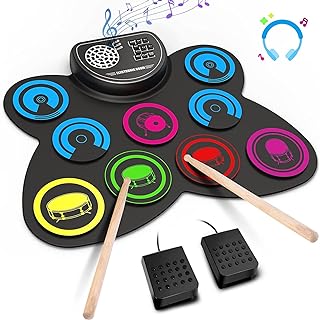5 important factors worth considering when looking for the best digital pianos
When you start looking to buy a digital piano, it can be exciting but also overwhelming. There are many things to think about when making a decision. Sound quality and how the keys feel are important aspects of the piano that will affect your experience. As you explore your options, it’s important to think about more than just the basic features and really dive into the details that will make a difference in your musical journey.
See our guide to the best digital pianos.
Sound quality
When choosing a digital piano, it’s important to prioritize sound quality. A good digital piano should be able to replicate the tones of an acoustic instrument well. It should offer a variety of realistic sounds to inspire creativity. The sound quality of a digital piano should be exceptional, whether it’s mimicking a grand piano or an electric piano.
Investing in a digital piano with great sound quality isn’t just about hearing the music – it’s about feeling it too. The depth and clarity of the sound can significantly impact your performance, allowing you to fully immerse yourself in the music and express yourself authentically. Whether you’re a beginner or a professional, a digital piano with excellent sound quality will be a valuable companion on your musical journey. Take the time to listen closely before making a decision, and let the sound quality lead you to the perfect digital piano that will help bring out the true artist in you.
Key action
When looking to buy a digital piano, remember that the feel of the keys is the most important factor. The way the keys feel when you play directly affects how well you perform. Look for a model with weighted keys that mimic the touch of a real piano. This will improve your playing and give you a more authentic experience.
Also, think about how responsive the keys are before making a decision. A digital piano with high-quality key action will accurately capture the dynamics and emotions in your music. Whether you’re a beginner practicing or an experienced player looking for precision, responsive keys can greatly impact your musical journey. By focusing on the key action, you’re not just getting a piano, but a tool that connects with your passion and enhances your musical expression.
Number of keys
When buying a digital piano, it’s important to think about how many keys it has. Some people say that a standard 88-key piano is enough for most players. But having more keys gives you more options to play different kinds of music. Choosing a digital piano with 88 keys or more lets you play in a more dynamic way and try out new music styles. It’s also great for beginners who want to improve their skills and move on to harder songs.
Having more keys on a digital piano doesn’t just affect what you can play – it also changes how it feels to play. Playing on a piano with a full set of keys feels more real and makes you feel like you’re really there. Each extra key makes the music sound deeper and more detailed, giving it more feeling. Whether you’re a professional musician trying to be more creative or a beginner pianist just playing for fun, having more keys can make your musical journey more exciting.
Polyphony
When buying a digital piano, it’s important to think about polyphony. Polyphony is often overlooked, but it’s really important for how your piano sounds. Having a higher polyphony count means that every note you play will be heard clearly and will last a long time. This is especially helpful when playing difficult pieces or using different sounds together. Some people might say that you don’t need a high polyphony count, but having one can make your playing sound better and more expressive. It also helps make your playing feel more real and immersive.
Digital pianos today usually have polyphony counts between 32 and 256 notes. Choosing a digital piano with a higher polyphony count might cost a little more, but the better sound quality and overall performance are worth it. Music should be felt and understood completely, and having a higher polyphony count lets you play complex pieces with more depth and accuracy. So, when you’re picking out a digital piano, focusing on polyphony can make your musical journey more rewarding. It can help you be more creative and express yourself fully through your music.
Connectivity options
When looking to buy a digital piano, it’s important to think about how it can connect with other devices like computers, smartphones, or tablets. This opens up a world of possibilities for musicians at any skill level. Modern digital pianos often come with USB, MIDI, and Bluetooth connections, which can help you explore new ways to create and play music. You can easily link your piano to music software, online tutorials, or virtual performance platforms, taking your playing to the next level.
Using different connectivity options can make your experience with a digital piano much better. For example, you can quickly transfer your music to your computer for editing or share it wirelessly with friends and other musicians. Being able to access a wide range of digital tools and connect with musicians worldwide can completely change the way you approach music. By taking advantage of the connectivity features in modern digital pianos, you can unlock your full potential and discover new ways to be creative and innovative in your music journey.
Conclusion
In a world where music lovers want a mix of old and new, digital pianos show how music is always changing. They combine modern technology with a timeless style, inspiring new musicians to be creative. By blending the past with the present, digital pianos connect us to our musical history while also looking ahead to the future. They represent the passion and creativity that music fans everywhere feel. Want more info on chess set ever, check the best chess set ever.


